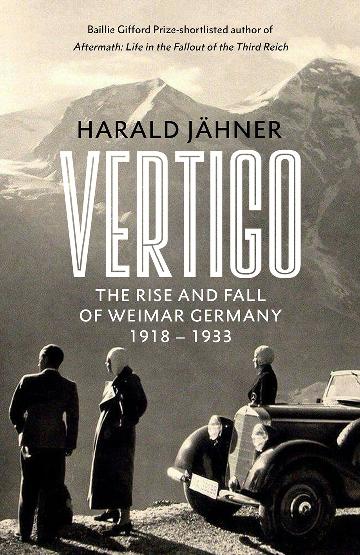Harald Jahner
Vertigo
Vertigo
Couldn't load pickup availability
Publishers Review
Baillie Gifford-shortlisted author Harald J hner (Aftermath- Life in the Fallout of the Third Reich) presents a staggering new assessment of the short life of the Weimar Republic between the wars in Germany.
'This is one of the most gripping accounts of an era spanning war defeat, humiliation and failed revolution in 1918 to the violence, intimidation and propaganda of the Nazis' rise to power in 1933. It contains many lessons for the world now.' - John Kampfner, bestselling author of Why The Germans Do It Better
'Vertigo is outstanding. Harald J hner's gift for illuminating the big picture with telling detail gives the reader an uncanny sense of what it was actually like to be present in Germany during the Weimar Republic. This is history at its very best.' - Julia Boyd, bestselling author of Travellers in the Third Reich
Germany, 1918 - a country in flux. The First World War is over, the nation defeated. Revolution is afoot, the monarchy has fallen and the victory of democracy beckons. Everything must change with the times.
Out of the ashes of the First World War, Germany launches an unprecedented political project- its first democratic government. The Weimar Republic is established. The years that follow see political extremism, economic upheaval, revolutionary violence and the transformation of Germany. Tradition is shaken to its core as a triumphant procession of liberated lifestyles emerges. Women conquer the racetracks and tennis courts, go out alone in the evenings, cut their hair short and cast the idea of marriage aside. Unisex style comes into fashion, androgynous and experimental. People revel in the discovery of leisure, filling up boxing halls, dance palaces and the hotspots of the New Age, embracing the department stores' promise of happiness and accepting the streets as a place of fierce political battles.
In this short burst of life between the wars, amidst a frenzy of change, comes a backlash from those who do not see themselves reflected in the new Republic. Little by little, deep divisions begin to emerge. Divisions that would bring devastating consequences, altering the course of the twentieth century and the lives of millions around the world. Vertigo is a vital, kaleidoscopic portrait of a pivotal moment in German history.
Share


